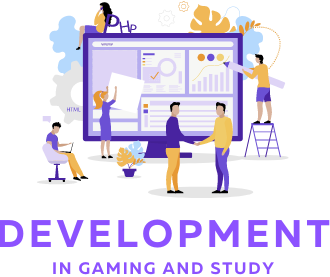In the vast landscape of human leisure activities, few phenomena have captured the imagination and attention of people across ages and cultures like games. From ancient times to the digital era, games have served as a powerful medium for entertainment, social interaction, education, and even personal growth. Let’s delve into the rich tapestry of games, exploring their impact on society and how they continue to evolve in the modern era.
The Origins of Play
The concept of play is deeply ingrained in human Dewalive nature, dating back to the earliest civilizations. Ancient civilizations indulged in various forms of games, from the strategic complexities of chess in India to the athletic competitions of the Greek Olympics. These early games not only provided entertainment but also served as a means of social bonding and skill development.
As societies evolved, so did the nature of games. The Middle Ages saw the emergence of board games like Backgammon and Go, offering intellectual challenges and opportunities for leisure among the nobility and common folk alike. With the advent of the Industrial Revolution, traditional games began to blend with modern innovations, giving rise to new forms of entertainment.
The Rise of Digital Gaming
The 20th century witnessed a revolutionary leap in the world of games with the advent of digital technology. The invention of the computer paved the way for electronic games, with early pioneers like “Spacewar!” laying the groundwork for the billion-dollar industry that would follow.
The arcade era of the 1970s and 1980s saw the rise of iconic titles like “Pac-Man” and “Space Invaders,” captivating audiences with their addictive gameplay and cutting-edge graphics. The home console market exploded with the introduction of systems like the Atari 2600 and the Nintendo Entertainment System, bringing the arcade experience into living rooms around the world.
The Modern Gaming Landscape
Fast forward to the present day, and the gaming industry has become a cultural juggernaut, rivaling even the film and music industries in terms of revenue and influence. Advances in technology have ushered in an era of unprecedented realism and interactivity, with sprawling open-world adventures, competitive esports tournaments, and immersive virtual reality experiences pushing the boundaries of what games can achieve.
Moreover, games have transcended their role as mere entertainment and have emerged as powerful tools for education and social change. Educational games teach everything from mathematics to history in engaging and interactive ways, while games like “Foldit” harness the collective problem-solving abilities of players to tackle real-world scientific challenges.
Looking Ahead: The Future of Gaming
As we gaze into the crystal ball of gaming’s future, the possibilities seem limitless. Augmented reality (AR) and virtual reality (VR) technologies promise to blur the lines between the digital and physical worlds, offering entirely new avenues for immersive gameplay experiences. Meanwhile, advancements in artificial intelligence and procedural generation hold the potential to revolutionize game design, creating dynamic, infinitely replayable worlds that adapt to the player’s actions in real-time.
However, with great power comes great responsibility. As games continue to evolve and proliferate, questions surrounding issues like inclusivity, diversity, and ethics become increasingly important. Developers must strive to create experiences that are not only entertaining but also respectful and inclusive of all players, regardless of their background or identity.
In conclusion, games have come a long way from their humble origins as simple pastimes, evolving into a multi-billion dollar industry that shapes culture and society in profound ways. Whether you’re a casual player or a hardcore enthusiast, there’s no denying the enduring power of play to entertain, inspire, and unite us all. So pick up that controller, roll the dice, or boot up your favorite game – because in the world of games, the adventure never ends.
